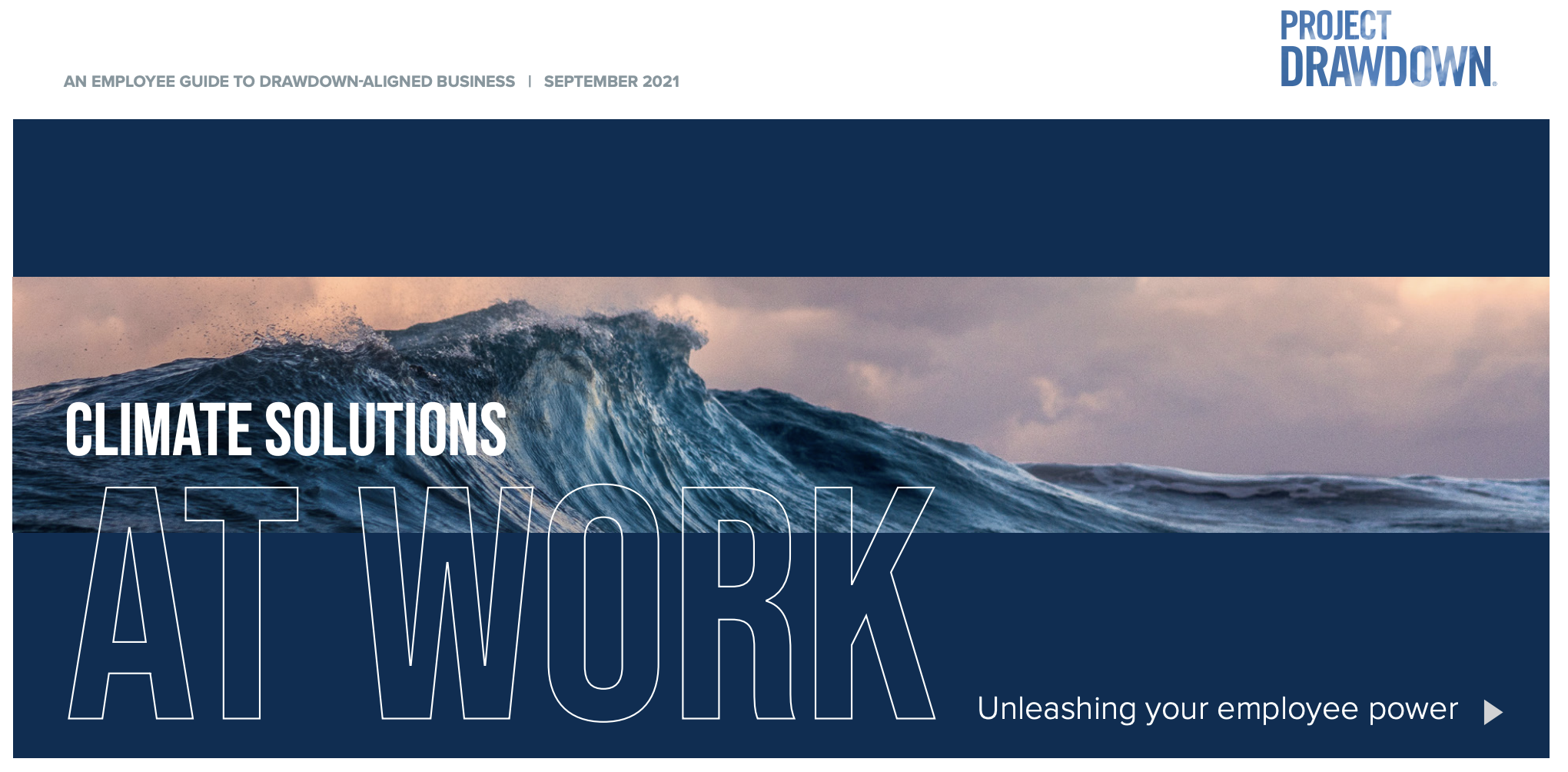Updated on 2023-07-14 by Adam Hardy
I always told myself I should leave the world a better place than I found it. So do a lot of people, including most likely the white-collar workers filling those office spaces in financial districts around the world, and then there’s the business corollary “do no harm” that corporations have adopted.
I have much in common with my co-Generation X’ers, except my engagement for climate action and my questioning of the tenets of free market capitalism. But we all want to keep our quality of life, so ultimately we want the same thing, even if our idea of the means of doing so are different.
The science shows how unlikely it is that our quality of life can be maintained with the current socio-economic order. In fact we can’t even measure our quality of life in the same way with sufficient relevance. Gross Domestic Product and personal financial status are no longer reliable measures for the future and give us no assurances in the face of the risks that come with climate change. What I am interested in is how to maximise the chances of keeping the future I used to be so sure of and to avoid contributing to the steady worsening of the world we live in. And a major part of that is to consider where we work.
High Carbon Employment
The City of London, Canary Wharf, Wall Street, Hong Kong, Singapore, Chicago, Tokyo and the other financial centres of the world employ millions of people in secure, well-paying jobs. They allow their employees to live in affluence and maintain large personal carbon footprints.
This is despite the knowledge that our actions interfere with forces in the world that could easily get beyond our control[1]A recent academic paper on climate tipping points demonstrates the enormity of the risks and consequences humanity faces: Interactive tipping points in the global climate system increase the risk of … Continue reading. Some climatologists think that tipping points have been crossed years ago, but whether we have reached that point or not, society is moving out on to a slippery slope.
In the industrialised world, only a lucky few truly love their jobs. My partner is one of them, working as a scientist for a cancer research charity – what is better than saving lives? But most employees are committing the best part of their lives in return for no more than the financial reward. So given the climate crisis, now is the time for everyone to start thinking a bit more about their money and that desire to leave the world a better place, to consider their employment and investment alternatives.

The establishment may appear to be the untouchable foundation of our world. But the system is not as all-powerful as it seems. Protests, direct action, divestment campaigns, shareholder action and votes have recently brought about paradigm shifting change – and all this despite the enormous sums that corporations have poured into lobbying, green-washing and marketing in order to maintain the status quo.
Reducing Employment Carbon
Aside from the climate action we can take in our private life, if I were still working in a corporation, these are the questions I would ask[2]How Much Do A Company’s Ethics Matter In The Modern Professional Climate? A lot! See this article in Forbes:
- Does the corporation I work for have a strong set of Environmental, Social and Governance policies? “Strong” means the policies are proportionate to the climate crisis, i.e. are designed to halve emissions by 2030 (not just some far off 2050 goal).
- Is the corporation a force for good, or are its business activities fundamentally destructive and ethically questionable?
- What lobbying activities does the business undertake?
- Has it aligned itself with the Paris 2015 Climate Accord 1.5°C/2.7°F target for global warming, the globally accepted limit that will allow the planet and society to thrive?
However, there are two problems with this list. One is that most corporations haven’t introduced any of this. The other is that it may not be easy to check. For example, they may have accepted Net Zero 2050 targets, which are a very business-friendly option. But these targets are virtually pointless if they don’t meet the goals of the Paris 2015 Climate Accord, which mostly, they don’t[3]Governments and corporations are facing regular broadsides from closer and closer to home – this is the latest at the time of writing: Climate scientists: concept of Net Zero is a … Continue reading.
What Next?
Assuming the corporation I work for hasn’t created science-based, Paris 2015 1.5°C/2.7°F-compatible business plans[4]This infographic from Visual Capitalist provides a great overview of the top 500 corporations and their targets – but note: most assume that both 2050 as a deadline and carbon offsetting as a … Continue reading, what should I do?
Changing jobs may be a difficult move. There may even be “golden handcuffs” in my employment contract or relating to my pension. The easy and comfortable choice is not to think about it too much and to keep delaying the personal decision or conversation with significant others. But time here is not our friend. Keeping the climate crisis impacts and risks of substantial worsening mentally ‘on the table’, so to speak, is key to taking action.
I can make a bit of a difference with a type of moral “offsetting”, soothing my conscience, especially if I actually like my job, or just can’t face the idea of financial upheaval. Maybe I can stay in the corporation but push for a better understanding among colleagues while also reducing my own carbon footprint as much as possible and even volunteering for charitable work in my free time. EcoCounts, EcoCore’s sister organisation, runs Climate Fresk workshops which are engaging, interactive lessons in the science of climate change, and very effective at opening people’s eyes.
Another approach is to find a better employer, whose vision of the future and the part it plays is more in tune with the current risks of the climate crisis. I’d look for a small company, ideally a co-operative or a B corporation, not one with liability limited by shares. By law companies bought and sold on stock markets are forced to focus more on the greed of investors than the needs of society as a whole. Emitting CO2 is not illegal and so while doing so provides the best return on investment, it will continue.
And My Savings?
It’s a rare individual who doesn’t feel more comfortable with a bit of a financial cushion. But one way or another, savings and pensions involve the stock markets, either directly (see our rundown on Abundance) or through funds which invest our money for us. And in that process we contribute to the whole problem via the capitalist machinery because there too the system is set up to maximise the financial return, with no regard for the impact on the environment or any “externality”.
Leave the World a Better Place?
These are the two sides to the stock market coin: on the one side as employees, we carry out the unsustainable business of our corporations, and on the other side, we drive it on with our investments. Pro-climate forces have had a huge impact recently on the captains of industry, so now let’s try influencing the corporate foot soldiers too.
EcoCore is on a mission to combat climate change – if you want to help, please set up a small regular donation here via Patreon ![]() .
.
Related Content
Listen to Bill McKibben, author of several best-selling climate books, on not leaving the world a shabbier place (legacy!): https://yaleclimateconnections.org/2023/07/activist-bill-mckibben-rallies-adults-over-age-60-to-fight-for-climate-action/
The big question for employees: should I stay or should I go?

Some practical tips: Switching Jobs or Staying Put? (from Honest Work)


A simple guide to being a good employee: https://honestwork.org/
References
| ↑1 | A recent academic paper on climate tipping points demonstrates the enormity of the risks and consequences humanity faces: Interactive tipping points in the global climate system increase the risk of climate domino effects |
|---|---|
| ↑2 | How Much Do A Company’s Ethics Matter In The Modern Professional Climate? A lot! See this article in Forbes |
| ↑3 | Governments and corporations are facing regular broadsides from closer and closer to home – this is the latest at the time of writing: Climate scientists: concept of Net Zero is a dangerous trap |
| ↑4 | This infographic from Visual Capitalist provides a great overview of the top 500 corporations and their targets – but note: most assume that both 2050 as a deadline and carbon offsetting as a tool are OK. Visual Capitalist |


